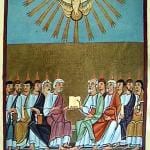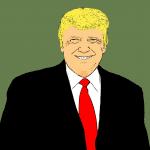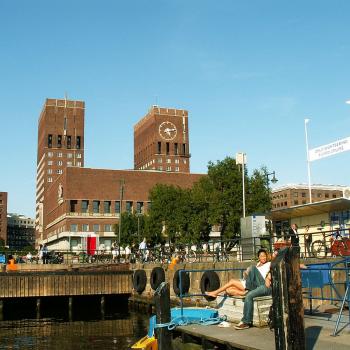Fr. Waldstein has responded (and mirrors some of my critique in the previous paragraph). His piece does not do much to clarify what I see as the fundamental problems facing Integralism: how do you simply get subjects who know Liberalism to go back and accept hierarchy as an intrinsic good? How do you get people to simply stop thinking freedom of speech is a positive? How do you get people to oppose, to some degree, “free enterprise” as a form of class mobility? Perhaps Father has answers to these questions. I don’t know. But, if Troutner’s prescriptions have anything on Fr. Waldstein’s, it’s that he takes as gospel that there can be no going back, that each epoch learns from the last and hangs on to certain developments from it. The future is never merely a return.
Both of these men are smart writers who see the problem clearly: what next? The shooter in New Zealand sought an answer to that question. Marxists continue to do so. The Nazis offered their own vision. Anarchists propound another. Only the Liberal center clings to the idea that our institutions can weather this storm mostly unchanged. Most young people I know—religious and otherwise—are not so sure. This suggests to me that they are both, at some level, asking the right question.
A major part of this question is what will become of “secularity.” This is a term with an old history, dating back to St. Augustine and beyond. Liberalism and it have grown up together such that most Modern societies simply accept that the public square must be secular. Western monotheistic faiths are illiberal insofar as they do not simply allow the believer to bracket his spiritual concerns when he enters the public square. These religions believe in a God beyond Liberal institutions who demands things from them. Thus we find ourselves in battles over religious liberty: can a mohel suck the blood off of a penis after the circumcision (risking infecting the baby)? Should circumcision be allowed at all? Can Christians deny service to those they see as blasphemers? Can women wear the hijab in public?
Different states have attempted different solutions. There is the strict laïcité of France and Turkey, in which religious expression must be effectively excised from the public square. There is the American attempt to embrace pluralism as such, relegating religion to the private sphere, without truly banning its public expression. Some, such as E.L. Doctorow, have argued that this strange synthesis is what defines America, and has since we rejected the idea of an established church (even if individual states kept these until later). The British have kept the Anglican Church, while trending away from religion, hoping that this institution may act as a social glue.
But with illiberal ideas on the rise, with Liberalism, perhaps, dying, theorists have been trying to re-define the secular. Troutner and Fr. Waldstein don’t say so, but each of their projects attempts this in one way or another; they try to imagine religion without civic disembowelment. Talal Asad has famously tried to historicize secularism, painting it as a specific moral position, not some neutral arbiter, allowing all faiths to play nicely. William Connolly has done something similar:
In turn, Why I Am Not a Secularist argues neither about secularism per se nor about “the secular,” but instead about the “conceits of secularism” harbored within the intellectual, spiritual, and political configurations of today’s secularists. Secularists prefer to connect secularism to the European experience of toleration among diverse forms of Christianity, “because it paints the picture of a self-sufficient public realm fostering freedom and governance without recourse to a specific religious faith.” And the idea of “secularism” emerges from secularists’ self-presentations as partisans of freedom within the bounds of public reason. Perhaps more precisely, wherever secularism comes from, it can be engaged as a particular political ideal, voiced in a certain way, by an identifiable constituency. As a preliminary definition, secularism is an idealized vision of political life that “strains metaphysics out of politics” and “dredges out of public life as much cultural density and depth as possible” in order to secure the authority of public reason and a rational morality, and the legitimacy of both to govern within the territorial boundaries of the nation-state until such a time as they can govern universally. (“Landmarks in the Critical Study of Secularism”)













